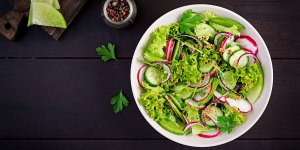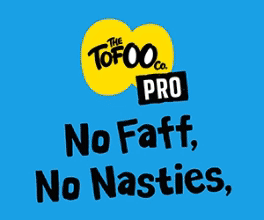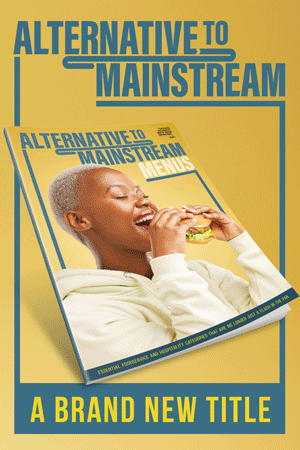Foodservice forum: Provenance and sourcing

How do you ensure responsible food sourcing and provenance?
Samantha Davis
Group procurement and supply chain director, CH&CO
Responsible sourcing has become incredibly prevalent and it’s always at the forefront of our decision making across procurement and supply chain. It’s important to us, our clients and our customers.
Food has a huge impact on the planet and people are growing more and more aware of the vital role it plays in the climate crisis. It’s not only essential that we source responsibly, but also that we are authentic and that our teams, clients and customers understand our practices and are reassured that we are sourcing as responsibly as we possibly can.
CH&CO has engaged with the Authenticate platform to help us be as transparent as possible with our supply chain. It’s about working in partnership with our suppliers to share information, and through this platform they can provide a variety of data – from deforestation and water resilience to where the feed for the animals originates. Our clients demand this level of information and it is our duty to ensure everything we buy can be traceable, from a china cup all the way to our cucumbers!
We also take our supplier diversity really seriously and we have engaged with our supply chain, again via our Authenticate platform, to ensure we can track and report on our diversity numbers. In 2021, taking 90% of our direct spend, 41% was represented by small- and medium-sized enterprises. We have a real desire to grow this over the coming years, together with increasing the number of minority-owned businesses we work with. We will be relaunching our innovation dens – which give small, niche suppliers a platform to showcase their produce to our procurement and food teams – later in the year to support this. This is a great initiative and we can’t wait to get back on the road.
High quality, responsibly sourced food is a strong underlying principle across our portfolio. We apply a ‘local larder’ philosophy to our sourcing strategy. Each larder boasts high-end suppliers across all key categories for a bespoke offer, delivering exceptional food with a story. Many of the suppliers in our local larders are themselves producers, which really closes the gap between farm and fork.
Partnership is essential to working with our suppliers – they are always happy to share their expertise, which is a huge benefit from both an engagement and a sharing of information perspective. We encourage regular pop-up supplier activity to showcase the provenance and food stories within our business directly to our teams, clients and customers.
Sally Leigh
Strategic purchasing and logistics director, Elior
At Elior we operate with an extensive supplier network, as we offer a whole host of products suited to differing customer needs. This affords us the freedom to be particular about the sustainability and provenance agenda, so we can make the right choices, for the right reasons. For those companies that have a leaner supply chain, it is more difficult. We also have a network of regional fresh produce suppliers who work with local farms and growers to really support their businesses and reduce our food miles.
The best approach for responsible food sourcing is to encourage a questioning culture. Most products have a marketing message attached to them; this could be a food certification or a manufacturers’ corporate message. Often you need to look beyond that and ask open questions to delve deep into provenance, sustainability and social values. There is so much more to know than what’s contained on any marketing collateral.
Responsible food sourcing and sustainability are high on corporate agendas. It is an ongoing process that involves constant learning and a constructive feedback loop. Doing good for the planet and people should engage everyone in an organisation.
For us at Elior, we’re lucky enough to have so many pockets of excellence and we all learn from each other. Our corporate social responsibility (CSR) team plays a very active role in defining our food sourcing policies and Charlotte Wright, our head of CSR, hosts a sustainability footprint forum each month to facilitate idea sharing among our teams. This drives employee engagement and brings lots of excitement and innovation.
In the procurement team, we recently ran a sustainability competition for suppliers to put forward initiatives that they are working on, or that are in progress, identifying the best initiatives that could be rolled out on a wider scale. We then shared them with our own supply chain to get everyone involved in making positive changes.
What’s more powerful than individual company policies is when the entire supply chain collaborate in order to drive responsible food sourcing. There’s a lot of work to be done but together we can achieve great things.
Anne Simonnet
Head of sustainability and compliance, Foodbuy
As one of the UK’s leading food procurement businesses, Foodbuy has an important role when it comes to the sustainability of our planet and responsible sourcing. We spend over £1bn every year, so we have the size and scale to make a difference and we want to deliver the best products for our clients, delivering on value but also operating in an ethical way.
In May 2021, our parent company Compass committed to climate net zero by 2030, but we are not blinkered by carbon emissions alone. Alongside this, we also have to deliver responsible food sourcing with integrity in provenance.
We have a dedicated team who analyse data and constantly review all of our purchasing processes to include sustainable and responsible sourcing – from kick-off to auditing – providing total transparency. We regularly update our sourcing standards, making them accessible to our team and suppliers, and these are regularly updated as guidance changes.
Collaboration is crucial and we work with our suppliers to build relationships that support improvements in our supply chains, making our policies more robust and raising the bar within the industry. We take supply chain integrity very seriously and have robust processes and protocols in place to ensure this. We work with reputable technological companies who are helping us, together with our suppliers, to confirm the origin of our products and maintain the integrity of our food supply system.
We are also engaging with global certifying bodies to ensure that the standards we set ourselves here in the UK can be verified across the globe. Another alliance is with Compassion in World Farming, which we have collaborated with to support its campaign to end all factory farming practices. These partnerships make our supply chain more responsible and improve the provenance of produce.
Finally, it’s important to get everyone on board – your organisation, stakeholders, clients and suppliers – as inspiring people to become part of the journey is a really powerful tool. To engage suppliers, we have introduced the supplier hub, where we share important industry and regulation updates and encourage best practice sharing among our supply base.







